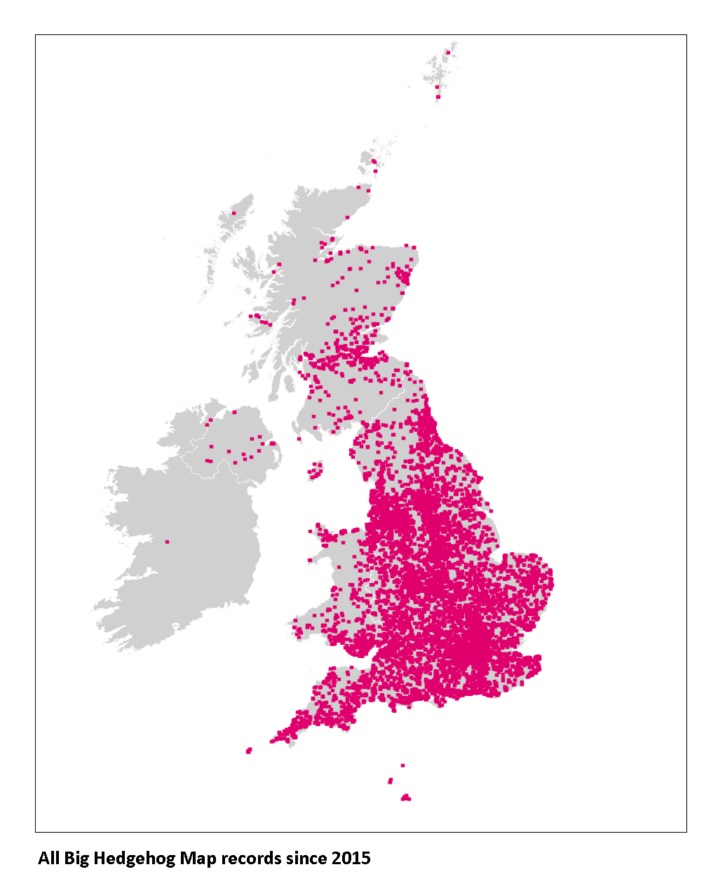I want a hedgehog for my garden - where can I get one?
Although they are incredibly cute and can appear tame, we should never forget that hedgehogs are wild animals and it is changes to their habitat, both in gardens and in the wider countryside that are part of the reason for their decline.
Read a basic summary of the reasons for the decline here.
We believe they are declining across both rural and urban areas, and depending on where you live, different factors may have resulted in the fact that you are not seeing hedgehogs.
Can we reintroduce them into my garden?

This is a commonly asked question, and the simple answer is that it is slightly missing the point.
Re-introductions are considered a last line of defence by conservationists, reserved for those species that are rare and have a highly fragmented range. For example, the PTES dormouse reintroduction project.
They are also complicated, because you need to understand the reasons why the animal died out in an area in the first place, and rectify these reasons, otherwise you are doomed to fail.
Are conditions right for hedgehogs?
One of their key requirements is space to roam – more space than you might have imagined. Early radiotracking studies showed hedgehogs travelling over a kilometer every night in search of food, over huge areas. We now think that a sustainable hedgehog population needs at least 90 hectares (900,000m2) of connected land to survive. This is many times the size of an average garden (150m2), and why ‘hedgehog highways’ are so important. With sufficient room hedgehogs can cope with most environments in Britain.
Good news: Your nearest hedgehog is not far away!
Hedgehogs are declining alarmingly, but they are still a common and widespread animal in the UK (at least for the moment).

The upshot of this is that the vast majority of us still live within a mile or two of the nearest wild hedgehog population.
Have a look at the BIG Hedgehog Map to see if people are recording ‘hogs nearby…
Even the middle of large cities have hedgehogs, for example Liverpool.

This, combined with the fact that hedgehogs can cover several kilometres in a single night, means reintroductions are not currently necessary.
The best conservation action for you is to encourage recolonisation of your garden by local hedgehogs.
You can always improve your garden for hedgehogs
This website contains lots of information about how garden habitats can be made more hedgehog-friendly, including helpful garden features, garden hazards, information on feeding hedgehogs and hedgehog homes as well as how to go about linking your garden.
By making these changes you stand a much better chance of your area being recolonized by hedgehog populations nearby.
Your local nature group or wildlife hospital would be a good starting point of enquiry to try and work out how the hedgehogs are doing in your local area and where the local populations are.
Co-operation is key
Central to Hedgehog Street is the fact that no single garden is enough for hedgehogs – people need to cooperate to help them.
Register as a Hedgehog Champion today and you can access all of the resources you would ever need (such as posters, fact sheets, invitation cards) to spread the word in your local area.
********************************************************************************************************
And finally, are you sure you don’t have hedgehogs..?!
One final point to make would be that garden owners sometimes think that they don’t have spiny visitors, when they actually do! This is because hedgehogs are inconspicuous and most people aren’t out in their garden at 3am.
You can use a tracking tunnel to tell for sure…
Fingers crossed!

